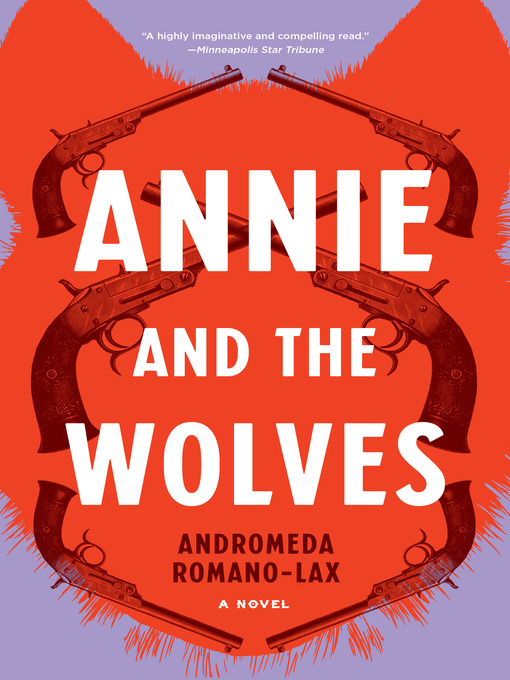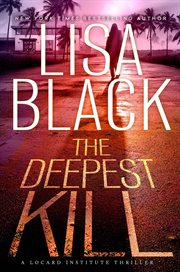Chapter 1 Rose didn't count on this. The view itself has stolen her breath. Before she thought, a lake is a lake is a lake. But she was wrong. This is where it happened, and this is why she had to see it firsthand: because you can't count on others to look past the pretty surfaces of things. "Gorgeous!" says one of the other women, exiting the shuttle bus just behind her. "Don't you think?" Rose doesn't answer. Her hand has crept to her chest, massaging the tense spot below her collarbone where the ache sits, a hard knot of grief and regret. You can dislike a place even without seeing it. But you can truly despise it only when it's in front of you, glittering quietly, making a mockery of what you know and even more, what you don't. One by one, they all exit the small bus and gather at the bottom of the sloping, sunbaked concrete ramp, alongside a half-rotted wooden dock, united in their confusion about the geography, not sure what will happen next. They've been told they're taking a water taxi to their cabins. "But why couldn't the bus have taken us there?" someone asks. "We must be staying on an island," another woman guesses. "Not an island," explains the twenty-something guide, Ana Sofía, gesturing for all twelve women to come closer. "Villages ring the lake. San Felipe is only a few miles from here, but the road doesn't go all the way around. It's easier to hop from village to village by boat or sometimes by tuk-tuk. Anyway, it's more magical, yes?" That will be the answer for every inconvenience, Rose thinks. Bad roads, limited internet service and three-wheeled minitaxis are magical. Boat trips and seasickness are magical. Rustic cabins that aren't conveniently located by the famous writer's house: more magic. And to figure it all out they will have to stick together, this small group of women, and that, too, will create its own kind of spell. Already, the outside world has begun to drop away, the bonding has started, though Rose remains at the fringes, willing the others to forget about her so she can orient herself to this place and this moment, in her own way. Near the waterline, an old man is rinsing silver fish the size and shape of salad plates, dragging each one back and forth in the murky water, then dropping them into a white utility bucket. The fishy smell wafts toward Rose. She pulls the brim of her straw sun hat lower, waiting for her stomach to settle from that last hour of hairpin curves. Across from the boat launch rise two volcanoes, the larger one wreathed in clouds. In front of Rose, Lake Atitlán, the deepest lake in Central America, is calm at this hour. Blue-black silk. Rose imagines the feeling of that silk, stuffed down her throat. She envisions trying to pull it out, hand over hand, like one of those magicians' scarves. She feels herself clawing for air, legs thrashing in the black water as the lake's glittering surface recedes. The moon was two days past full when her daughter disappeared. The lake was perfectly calm. The weather was mild. It doesn't matter anymore , Rose's ex-husband Matt said after the official six-week-long search ended, when Rose was still reading about cases like their daughter's--horrible stories of backpackers who wandered off the beaten track and were never seen again. Few of the experts they'd hired wanted to say it, but she and Matt could read between the lines. No one seemed to think Jules was still alive. No expert who understood the specifics of her "last seen" location, in deep water far from shore, thought her body would be found. A week after their last text message from Jules, it had been decided that Rose would stay back in Illinois. Making the most of his military background and comfort dealing with consuls and police, Matt flew to Guatemala and hired private helicopters for an overland search. With the cooperation of local authorities, he formed a separate team to drag Lake Atitlán the old-fashioned way, using lines and hooks. The first odd thing they pulled up, aside from beer bottles and soda cans, was a pair of white gloves. Rose remembers puzzling over the photo, snapped and texted by Matt moments before the police bagged the gloves as evidence. They weren't gardening gloves, and they weren't winter gloves, and they weren't for golf or cycling, much as Matt wanted them to be, because sport gloves were something Jules might have owned. The question paled in significance when Rose's phone dinged an hour later. A few hundred feet down the lakeshore, a more important item was found: Jules's shirt, a pin-striped button-down Roxy cover-up. In response to Matt's question, Rose texted back with shaking hands: Yes. I'm sure. She was in the bathroom throwing up when he replied with his typical reticence. I thought so too. That same day, a Canadian retiree made his way to the police substation in San Felipe and filled out the report that Rose would reread every day for a month. The man, one of many North Americans who owned second homes on the shore of Lake Atitlán, had returned to his house one late afternoon in time to see a girl matching Jules's description swimming dangerously far offshore. He saw her once, treading water, backlit by the sun, which was just minutes away from dipping below the far mountains. He went inside for several minutes, to find a pair of binoculars. When he came back out, there was no girl. He forgot about it until he heard the helicopters and saw search boats amassing, a full week later. While the boats continued to prowl every inch of Atitlán's lakeshore, Rose read more about drowning than her therapist would have advised. She learned that gases caused by decomposition force corpses to balloon, allowing them to rise to the surface within days. But if a body sinks to a place that is deep and cold enough, time stops. The body barely decays. The corpse may never surface at all. Still, the shirt, found not far from the location reported by the Canadian, had given them hope. While Rose remained behind in Evanston, monitoring social media accounts and reading emails and DMs from anyone who might have interacted with Jules during her trip, Matt ramped up the lake-based search. His team turned to scuba and sonar imaging from a motorboat steered by a couple who'd made an art of finding bodies in lakes and reservoirs all across North America. But never deeper than about 170 meters. Lake Atitlán is 340 meters--deeper than Lake Michigan, back home. A lake that deep can swallow any number of secrets. Hills searched, lake dragged, town walked end to end by Matt and a private detective, that left one stone unturned, in Rose's view. Only the local police succeeded in talking to Eva Marshall. Even though Jules claimed to have started working a job for the famous author and writing teacher just before Jules's disappearance, Eva refused to schedule a visit or even a phone call with Rose or Matt. The only email to which Eva bothered to reply, and then only briefly, referred them back to the official police statement she'd already given. Then: nothing. Rose's next four emails to Eva went unanswered. The message was clear: stop emailing. But what mother would? Finally, an admin assistant named Trish replied, informing Rose that Eva was busy running her memoir workshops and wouldn't be replying personally. The workshops . Before she'd even floated the idea to Matt, Rose was already signed up, using the maiden name she hadn't used in twenty-five years, McKenna, on the application form for the upcoming Lake Atitlán session. She already knew, from googling herself first, that a search of her common name turned up hundreds of women's images--none of them hers--plus several rose varieties. Someone idly searching wouldn't make a connection with Jules. Rose has no ambitions whatsoever as a memoirist, not even the tiniest desire to be published. She's not a good storyteller and she's an even worse liar. But you do what you must after you've already tried everything else. Rose has stopped massaging the tight spot below her collarbone. She lets her hand rest there, feeling her heart's sped-up staccato, trying to will herself into a state of serenity. The closest she can achieve is a tense, purposeful dread. Near the bottom of the concrete ramp, a cute little girl with ink-black hair approaches the women travelers and tries to sell them woven bracelets by tying them directly to their wrists, accepting payment after the fact. Even the guide gives in and buys one, allowing the precious little fingers to secure the knot. The little girl's dark eyes flit toward Rose, but she seems to know better than to approach. At the end of the ramp, Ana Sofía hands out bottles of water, warning the group about the mile-high altitude and the potential for dehydration. When the guide holds a bottle high in the air, shaking it in Rose's direction, Rose nods without hurrying over. She needs one more moment to take it all in. Out on the lake now, a small white dot motors toward the women and their pile of luggage, churning the silky waters into froth. Ana Sofía calls Rose and a few other stragglers closer, but before Rose can comply, her seatmate from the bus--a British woman named Pippa--approaches. She puts an arm around Rose's shoulder. The women are so touchy, as if they're all friends, already. "You've been quiet. Savoring every moment, are we?" "Oh--yes." "Smart girl. Treat every day as if it could be your last." "I do," Rose says. Excerpted from The Deepest Lake by Andromeda Romano-Lax All rights reserved by the original copyright owners. Excerpts are provided for display purposes only and may not be reproduced, reprinted or distributed without the written permission of the publisher.



